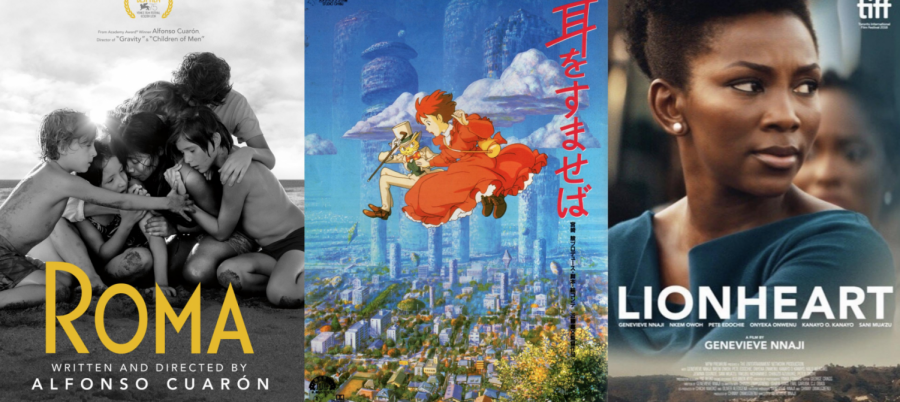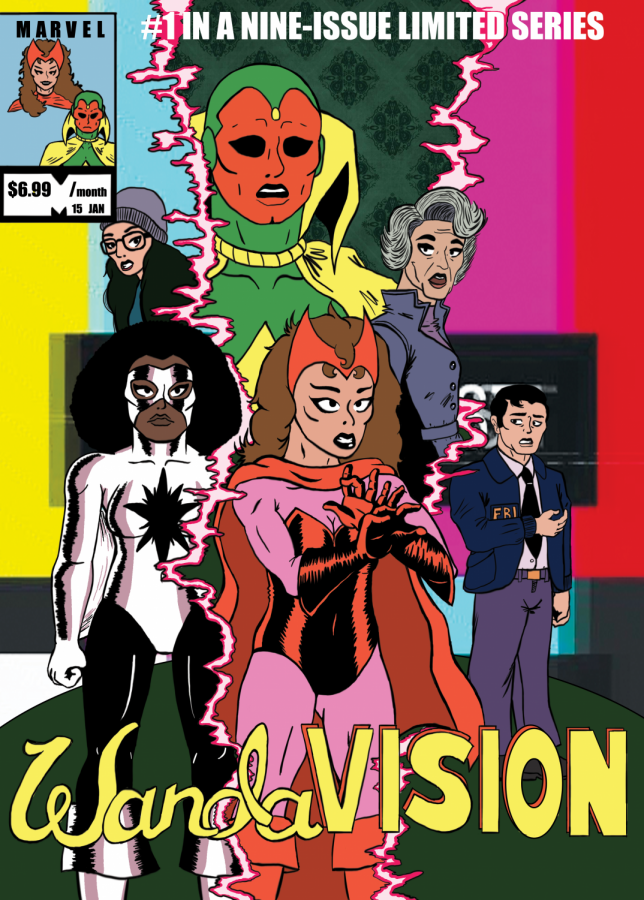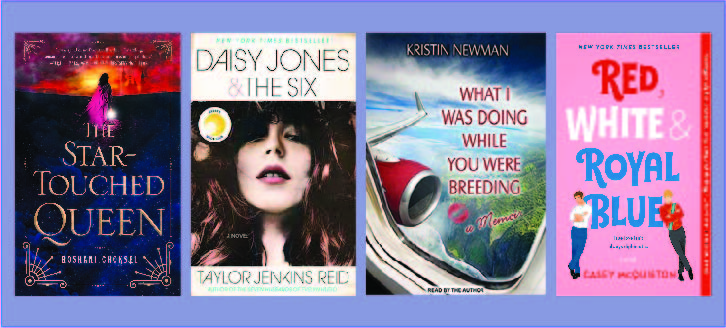Roma
by Maria Solórzano
Oscar-winning movie Roma is adding to the legacy of “The Three Amigos,” consisting of directors Alfonso Cuarón, Guillermo Del Toro and Alejandro González Iñárritu. For the past five years at least one of these directors has won a category in the Academy Awards.
Cuarón’s Mexican drama portrays the life of an upper-middle class family living in the neighborhood of Roma in Mexico City. Academy Award nominees, Yalitza Aparicio as Cleo Gutierrez, an indigenous live-in maid of the family, and Marina de Tavira as Sofia, the mother, star as two strong female leads who together maneuver the curveballs life throws. While Cleo’s boyfriend abandons her after she reveals her pregnancy to her boyfriend, Sofía’s husband and breadwinner of the house has decided to leave Sofia for a younger woman.
The fact that Roma is in black and white is innovative in its own way, forcing the viewer to focus on the intensity of every other characteristic. The simplicity of the film makes every detail more poignant because Cuarón uses visual images and sounds to give his viewers a sense of nostalgia. The whistle of the alifador (the knife sharpener) a common sound from a Mexican childhood can be heard throughout the film and everyone that is familiar with this culture automatically knows.
This film is an ode to Cuarón and his generation’s childhood whilst praising the beauty that is ordinary life. The point of the movie isn’t for it to be focused on the tragedies of life but the possibilities.
Whisper of the Heart
by Ryan Brownell
Adolescence is an important time in anyone’s life. It often marks the time of independence, relationships and self-exploration in the fantastic Japanese animated film Whisper of the Heart. Studio Ghibli manages to perfectly capture both the struggles and joy that often defines this period.
Whisper of the Heart, directed by Yoshifumi Kondō and written by Hayao Miyazaki, follows an eighth-grade girl and aspiring author named Shizuku Tsukishima as she falls in love with Seiji Amasawa, a young violin maker and fellow student at Shizuku’s high school.
The movie instantly catches the viewer’s attention with its stunning visuals and its off the beaten path romance story. In classic Studio Ghibli fashion, the world is sprinkled with plenty of bright reds, saturated blues and warm yellows. The setting itself is extremely detailed and comes to life as more of the setting is revealed.
Many romantic movies follow the same plot: the two love interests fall in love, have a breakup or argument of some sort, separating them, and in the end, come together. Whisper of the Heart evades this worn out plot while skillfully maintaining those gooey, gushy moments everyone enjoys from typical romance movies. Instead of having the conflict based around the budding relationship between the two main characters, the movie instead opts for a “man vs. self” conflict where Shizuku doubts her ability as a writer and her determination to finish her book.
Whisper of the Heart, directed by Yoshifumi Kondō and written by Hayao Miyazaki, serves as a love letter to adolescence, showcasing both the hardships during this transitional period in everyone’s life and the bittersweet joys found in young love.
Lionheart
by Janick Gold
Lionheart is Netflix’s first Nigerian film and a deserving introduction to the world of Nollywood, with standout performances from some of Africa’s forefront actors. Genevieve Nnaji, Nkem Owoh, Pete Edochie, and Onyeka Onwenu present strong messages about the importance of family, perseverance, and female entrepreneurship.
The film introduces its audience to Lionheart, a Nigerian transportation business based in Enugu. When company CEO Chief Obiagu suffers a non-fatal heart attack, his daughter Adaeze appears poised to take control of the company. Instead, Obiagu appoints his younger brother Godswill, and the two scuffle for power as Lionheart plunges into financial crisis.
Foregoing simple comedy to tell an earnest story about family, director, writer and lead actress Nnaji establishes herself amongst a growing field of acclaimed African directors. The film, though, often plays it safe and as a result suffers from a sort of awkwardness when various social issues are raised. With dual usage of the Igbo and English languages, it hints at the contentious concept of Nigerian nationhood. However, it fails to meaningfully confront the audience with its consequences. When Adaeze speculates that Obiagu did not appoint her CEO because of her femininity, her mother chastises her, and the topic is dropped entirely.
In the end, Lionheart is a feel-good movie. While several points of controversy are left unresolved, the actors are energetic and the characters are charming. The movie begins to branch out into the complexities of Nigerian culture, but it stops short of exploring them in front of an international audience.


















